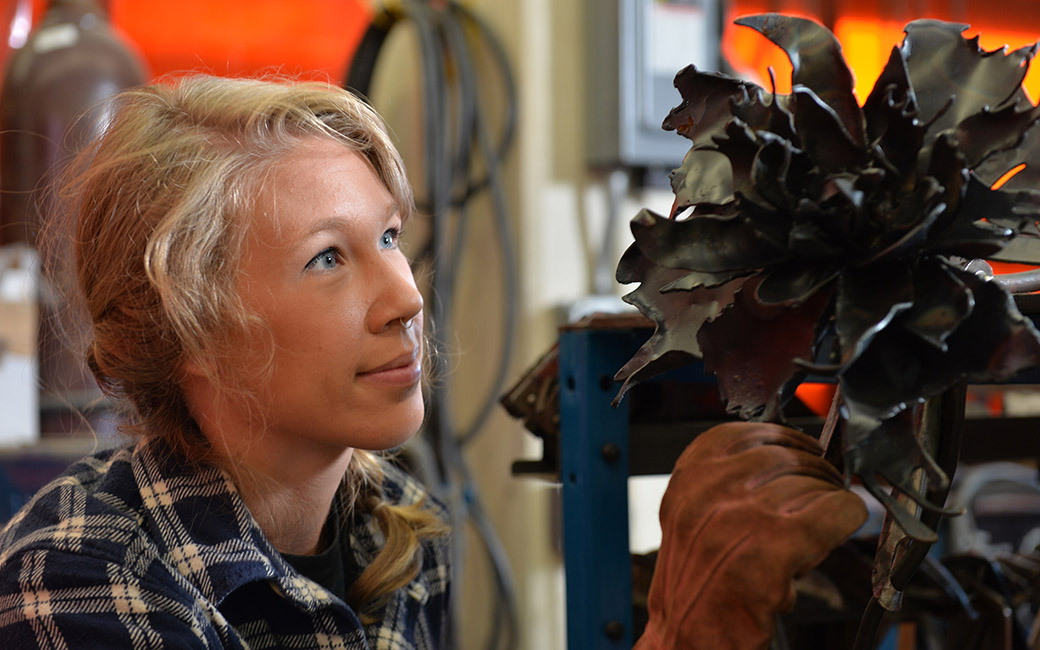About
The most exciting and engaging intellectual development often takes place outside of the classroom.

What is Research?
Academic research is actually much broader in scope than test tubes and lab coats. It can be in any academic discipline, from theater to government to chemistry.
Student research and creative activity exists in every field of study. It can be research in a traditional sense (e.g. data collection, archival research, structured interviews) or it can involve work that might be better characterized as a creative project (e.g. a work of art, a collection of poetry, a screenplay). Undergraduate research teaches you about a field you are interested in and helps you define your interests.
Why Do Research?
Students who have participated in undergraduate research consistently rate these experiences as among the most valuable of their college career. Faculty-mentored research allows you to explore a topic or area in more depth and to refine your academic and intellectual interests. Some students take on projects outside of their major field while others opt to challenge themselves with projects related to their major or career interests.
For students planning to continue on to graduate school, undergraduate research is particularly important, as some graduate programs require students to have engaged in research during their college years.
Even for those who do not plan to pursue graduate work, undergraduate research still develops essential skills that employers find extremely valuable. These skills and aptitudes include thinking critically, drawing evidence-based conclusions, and communicating findings and opinions. Perhaps the principal benefit of undergraduate research, however, is the opportunity to work one-on-one with a TU professor who can mentor and guide you as you make academic and career decisions.
Benefits of research
Involvement in undergraduate research has many benefits. You will:
- Gain practical, hands-on knowledge as you develop a good research question, conduct the research, and interpret and present your results.
- Meet and work closely with other intellectually curious and passionate students. Some undergraduate researchers have opportunities to meet alumni and industry professionals who can support their work and offer practical advice and assistance.
- Have access to state-of-the-art lab equipment and technology that may not be available in classrooms.
- Learn how to work collaboratively and in a team setting.